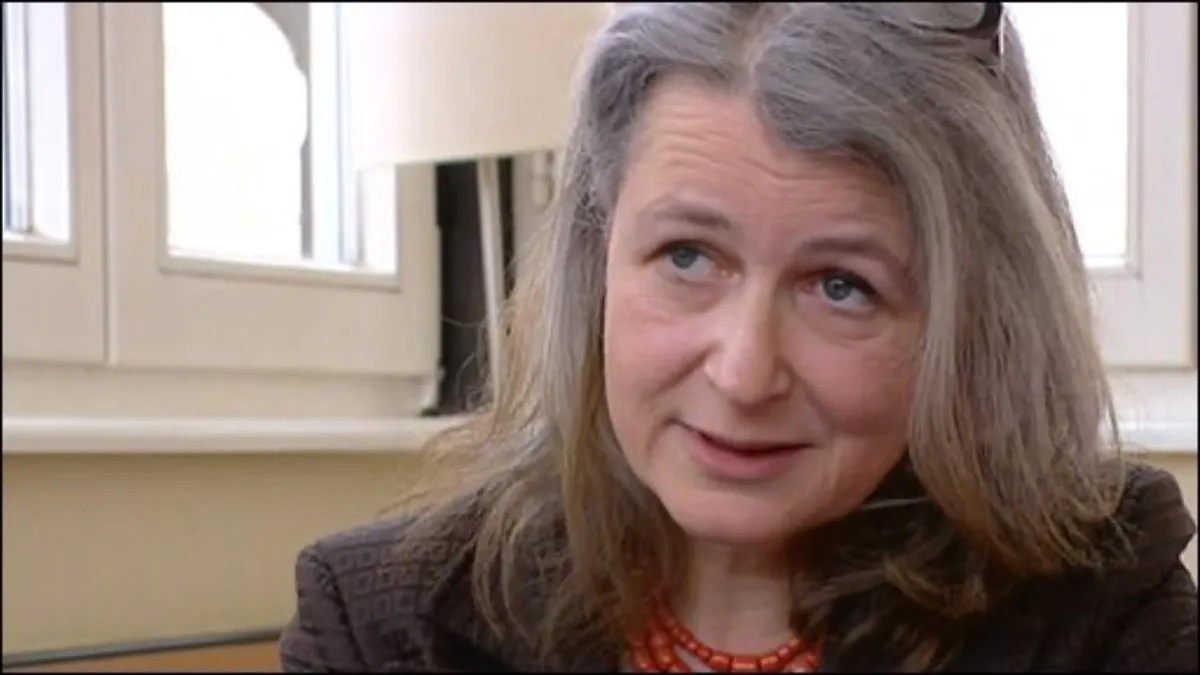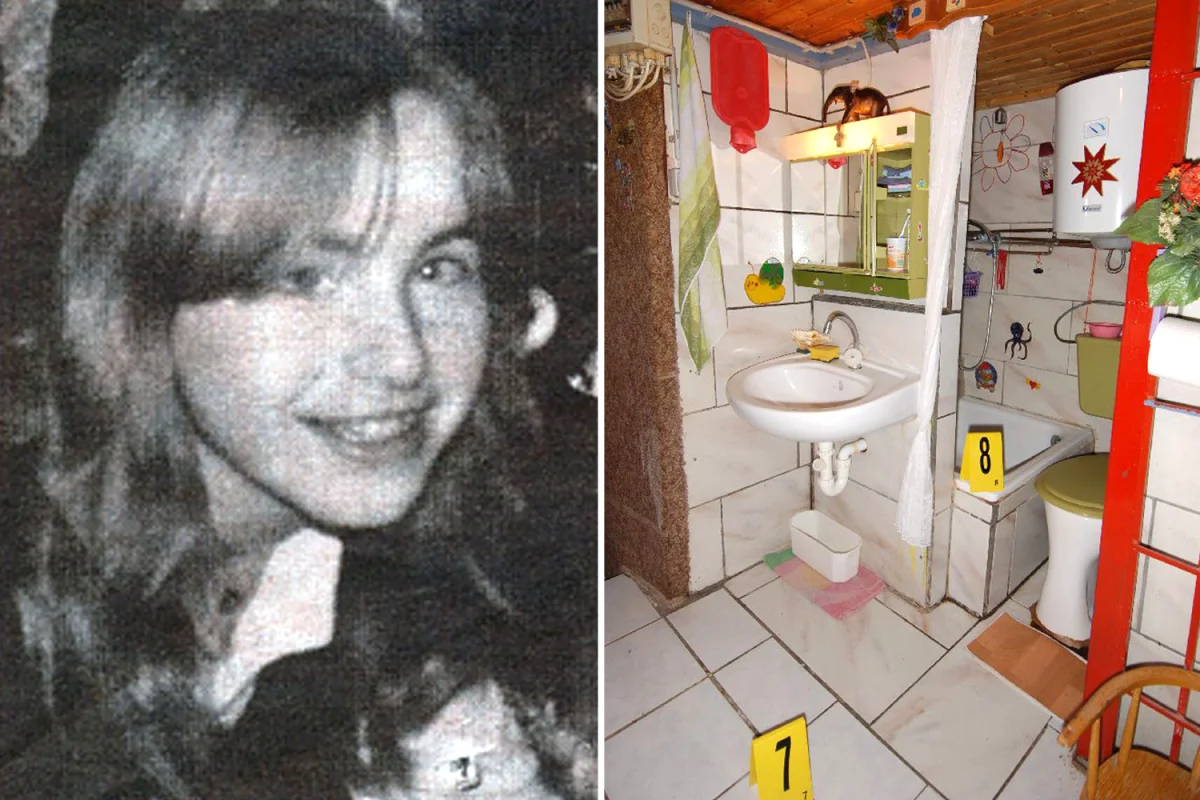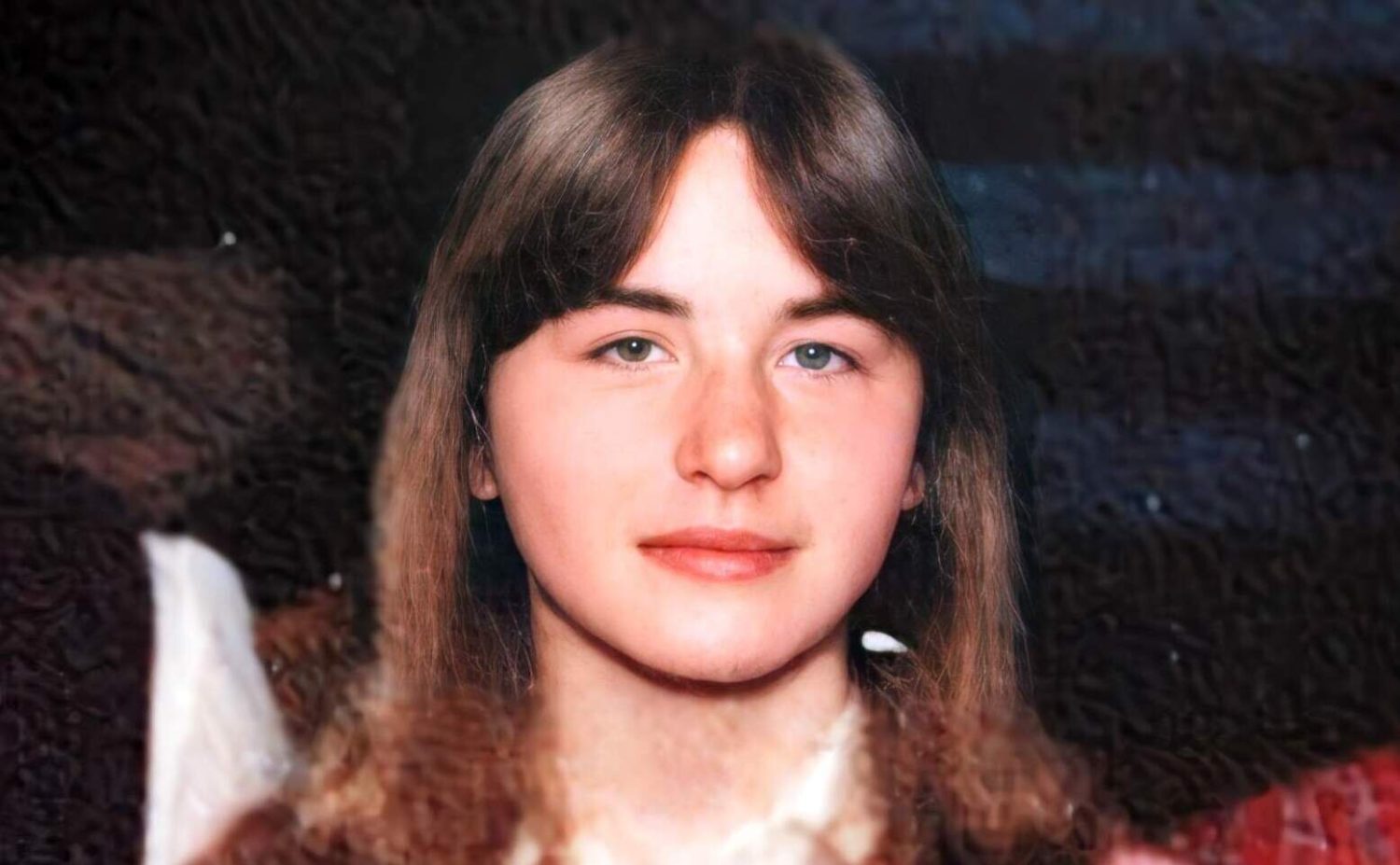Elisabeth Fritzl: The Unimaginable Ordeal And Her Secret New Life
The story of Elisabeth Fritzl is, in a way, one that truly shook the world, revealing a depth of human cruelty that was almost beyond belief. It's a name that, for many, still brings a shiver, connected as it is to one of the most horrific crimes in modern history. This was a case that emerged into the public eye in 2008, and it centered on a woman named Elisabeth Fritzl, born on April 6, 1966. She came forward to investigators in the quiet city of Amstetten, located in Lower Austria, with a tale of unimaginable suffering that had been hidden for decades.
Her account, so it's almost hard to grasp, detailed how she had been held captive for an astonishing period of 24 years. This wasn't some random act of violence; it was a deeply disturbing situation orchestrated by her own father, Josef Fritzl. He kept her imprisoned in a secret, purpose-built lair, a kind of hidden cellar beneath their family home. It was a place of darkness and isolation, a stark contrast to the ordinary life happening just above ground.
This article aims to shed light on Elisabeth Fritzl's incredible journey, looking at the horrifying reality she endured and, just as importantly, how her life has unfolded since her liberation. We will, of course, explore the sheer scale of her ordeal and, then, reflect on the path she has, in a way, forged towards a new existence, finding moments of peace and, even, love in the aftermath of such profound trauma. It's a story of survival, really, against the most extreme odds.
- Ifsa Sotwe Turk
- Emily Compagno Children
- Denzel Washington Training Day
- Lifemd Reviews
- Iran President Vs Supreme Leader
Table of Contents
- Elisabeth Fritzl: A Life Stolen
- Personal Details & Biography
- The Amstetten Horror: 24 Years of Captivity
- The Basement Prison
- The Children of Darkness
- The Unveiling of a Nightmare
- Life After Liberation: Finding a New Path
- Elisabeth's Journey Towards Healing
- A New Beginning: Love and Privacy
- Understanding the Impact of the Fritzl Case
- Frequently Asked Questions About Elisabeth Fritzl
Elisabeth Fritzl: A Life Stolen
Elisabeth Fritzl's early life, that is to say, her formative years, were tragically taken from her. This cruel act was carried out by her own father, Josef Fritzl, a man whose actions were, in a way, beyond comprehension. These crucial years, which are usually a time for growing, learning, and finding one's place in the world, were simply snatched away. Instead of experiencing the usual joys and challenges of youth, she was confined, her potential stifled by a truly depraved individual. It was, arguably, a theft of her very essence, preventing her from developing and living freely as any young person should.
The severity of her father's actions meant that Elisabeth Fritzl was, for all intents and purposes, caged. This wasn't just a simple lock and key; it was a specially constructed space, a hidden lair built right beneath the family home. For a staggering 24 years, this underground prison was her entire world. It was a place where light rarely touched, and where the sounds of normal life were, very, muffled and distant. This prolonged isolation, you know, stripped her of experiences most people take for granted, like seeing the sky, feeling the sun, or just walking outside.
Personal Details & Biography
Here are some personal details about Elisabeth Fritzl, based on what is known about her life and the case:
- Baggiest Jeans In Atlanta
- Lamar Jackson Injury History
- Lol Superman Explained
- Hot Girls Meme
- Duck Dynasty The Wealth Of Willie Robertson
| Detail | Information |
|---|---|
| Full Name | Elisabeth Fritzl |
| Date of Birth | April 6, 1966 |
| Age (as of 2023 context) | 57 years old |
| Place of Birth (implied) | Amstetten, Lower Austria |
| Duration of Captivity | 24 years (1984-2008) |
| Captor | Josef Fritzl (her father) |
| Location of Captivity | A basement lair beneath her family home in Amstetten |
| Children | Seven, fathered by Josef Fritzl |
| Current Status | Living a secret new life, found love with a bodyguard |
The Amstetten Horror: 24 Years of Captivity
The core of the Amstetten case, which surfaced in 2008, revolves around the unimaginable horror that Elisabeth Fritzl faced. She was, quite literally, held captive by her father, Josef Fritzl, for an astonishing 24 years. This was not a short period; it spanned more than two decades, a significant portion of a person's entire life. During this time, she was, in a way, completely at his mercy, cut off from the outside world and subjected to a truly terrible existence. The sheer length of her imprisonment makes it, really, one of the most prolonged and distressing cases of its kind.
Her ordeal involved, sadly, continuous sexual abuse at the hands of her father. This repeated abuse, combined with her imprisonment, created a living nightmare from which there seemed to be no escape. It was a constant violation, a stripping away of her dignity and autonomy over a very, very long time. The details, even when just stated as facts, paint a picture of profound suffering, something that is, in some respects, hard for anyone to fully grasp. This aspect of the case is, of course, particularly disturbing and speaks to the depths of human depravity.
The Basement Prison
Josef Fritzl, her father, went to great lengths to create and maintain her prison. He caged her, you see, in a purpose-built lair. This wasn't just some dusty old cellar; it was a specially constructed space, designed specifically to keep her hidden and confined. It was located beneath their family home, which, in a way, made the betrayal even more profound. The very place that should have been a sanctuary became her personal hell, a secret world of torment hidden just meters below where ordinary life was being lived.
For 24 years, this underground cell was her entire universe. She was, quite literally, imprisoned there, unable to see the sky or feel the sun on her skin. This kind of long-term confinement, actually, has profound effects on a person, both physically and mentally. It meant a complete lack of freedom, a constant state of vulnerability, and an absence of all the basic human rights we usually take for granted. The idea that such a place existed, hidden in plain sight, is, very, disturbing to think about.
The Children of Darkness
Perhaps one of the most heartbreaking aspects of Elisabeth Fritzl's ordeal is that she had seven children with her father, Josef Fritzl. These children were born in the basement, into a world of captivity and darkness, knowing no other reality for many years. It's a detail that, in a way, adds another layer of unimaginable horror to the case, showing the extent of the abuse and the profound impact it had on an entire generation. The children, too, were victims of their grandfather's depravity, living their early lives in complete isolation.
Some of these children were, eventually, brought upstairs by Josef and presented to his wife as foundlings, or as children Elisabeth had abandoned. This deception allowed him to maintain his facade of normalcy while continuing his horrific crimes below. The fact that these children were born and raised in such conditions, cut off from society and conventional care, highlights the truly disturbing nature of the situation. Their existence was, in some respects, a testament to Elisabeth's incredible will to survive and protect them, even in the most dire circumstances.
The Unveiling of a Nightmare
The Fritzl case, as a matter of fact, came to the intense public limelight in 2008. It was then that Elisabeth, who was held captive by her father Josef Fritzl for those 24 long years, found a way to tell her story. She informed investigators in Amstetten, Lower Austria, about the horrific reality she had endured. This moment of revelation was, quite frankly, a turning point, not just for her but for the entire world, as the details began to emerge. It was a story so shocking that it captured global attention, revealing a nightmare that had been hidden for far too long.
Elisabeth's courage in speaking out, you know, was what finally brought the unimaginable suffering she had faced into the light. For 24 years, she had been imprisoned and repeatedly abused by her father, Josef Fritzl, in Amstetten, Austria. The act of her informing investigators meant that this deeply hidden secret, this truly horrific crime, could no longer be kept under wraps. It led to the immediate investigation and, eventually, the exposure of a case that, really, shocked people everywhere, forcing them to confront the darkest aspects of human behavior. It was, in a way, her brave act that finally brought an end to her prolonged ordeal.
Life After Liberation: Finding a New Path
After being freed from her father's captivity in 2008, Elisabeth Fritzl embarked on a journey that was, in some respects, unlike any other. She had to, basically, learn how to live in a world she hadn't seen for 24 years. This meant adjusting to everyday things that most people take for granted, like sunlight, open spaces, and the simple act of choosing what to eat or wear. Her path to healing has been, understandably, a very private one, focusing on rebuilding her life and the lives of her children away from the glare of public attention. It's a testament to her strength, truly, that she has been able to navigate such a profound transition.
The focus for Elisabeth and her children has been on creating a new, safe environment where they can, actually, begin to process their experiences and live as normal a life as possible. This has involved, of course, extensive support and a commitment to privacy. The world she re-entered was, in a way, vastly different from the one she left in 1984. Everything from technology to social norms had changed dramatically. Her resilience in adapting to these changes, while also dealing with the trauma of her past, is, quite honestly, remarkable. She has, you know, shown an incredible capacity for moving forward.
Elisabeth's Journey Towards Healing
Elisabeth Fritzl endured unimaginable suffering at the hands of her father, Josef Fritzl, in Amstetten, Austria. Her healing journey has, therefore, been a very long and complex one. It involves not just physical recovery but, crucially, deep psychological and emotional repair. The scars of 24 years of imprisonment and abuse don't just disappear; they require ongoing care and support. She has, apparently, been working towards finding a measure of peace, learning to live with the memories while also building a future for herself and her family. It's a quiet, personal battle, fought with immense courage every single day.
The process of healing for someone who has experienced such prolonged trauma is, basically, a continuous effort. It means, in a way, rediscovering herself outside the confines of the basement, understanding who she is as a person beyond the victimhood. This involves, quite possibly, therapy, support networks, and the simple passage of time in a safe and loving environment. Her journey serves as a powerful reminder of the human spirit's capacity to endure and, eventually, to seek out light even after the darkest experiences. She is, after all, a survivor, and her progress is, really, a quiet victory.
A New Beginning: Love and Privacy
In a truly heartwarming development, Elisabeth Fritzl, who was held captive by her father Josef Fritzl for 24 years, has, in fact, found love. She is, as of now, living a secret new life, having found a partner in a bodyguard. This news offers a glimmer of hope and happiness in a story that has been, up until this point, filled with immense sadness. It suggests that even after experiencing such profound darkness, it is possible to find connection and, actually, build a meaningful relationship. This new chapter in her life is, in a way, a testament to her enduring spirit and her desire for normalcy and affection.
Elisabeth, now 57, has chosen to live a life away from the public eye, seeking privacy and peace. This desire for secrecy is, of course, completely understandable given the intense scrutiny and horror surrounding her past. Finding love with a bodyguard suggests a need for both emotional connection and a sense of security, which is, truly, vital for someone who has been so vulnerable for so long. Her ability to forge a new beginning, complete with a loving relationship, speaks volumes about her resilience and her determination to live a full life, despite everything. Learn more about survivor stories on our site, and you might also be interested in reading about other healing journeys.
Understanding the Impact of the Fritzl Case
The Fritzl case was, in a way, a truly singular event that emerged in 2008, and its impact resonated far beyond the borders of Austria. When Elisabeth Fritzl, born on April 6, 1966, informed investigators in Amstetten, Lower Austria, that she had been held captive, it sent shockwaves through society. The sheer audacity and prolonged nature of the crime, combined with the familial betrayal, forced people to, really, confront uncomfortable truths about human nature and the hidden dangers that can exist even within seemingly normal communities. It was, in some respects, a wake-up call for many, prompting discussions about child protection and the signs of abuse.
This case, you see, involved the unimaginable horror faced by Elisabeth Fritzl, who was held captive in a basement and sexually abused by her father, Josef Fritzl, for 24 years. She even had seven of his children during this time. The details, when they came out, were so disturbing that they prompted a global outpouring of sympathy and outrage. It highlighted the importance of vigilance, of looking beyond the surface, and of listening to those who might be suffering in silence. The story of Elisabeth Fritzl, a kidnap survivor, who was kept in the basement of their Austrian home for 24 years, became a symbol of extreme abuse and, just as importantly, of incredible survival. It continues to be studied and discussed, very, for its profound implications on human psychology and social welfare.
Frequently Asked Questions About Elisabeth Fritzl
People often have many questions about Elisabeth Fritzl and her truly harrowing experience. Here are some common inquiries, with answers based on the information available:
How long was Elisabeth Fritzl held captive?
Elisabeth Fritzl was, actually, held captive by her father, Josef Fritzl, for an astonishing 24 years. Her ordeal began in 1984 and only came to an end in 2008 when she was finally able to alert authorities. This period represents a significant portion of her life, a time when she was, in a way, completely cut off from the outside world and subjected to unimaginable conditions. It's a duration that, truly, underscores the severity of her suffering and the sheer resilience she must have possessed to endure it.
Where is Elisabeth Fritzl now?
Elisabeth Fritzl, who is now 57 years old, is, in fact, living a secret new life. After her liberation, she and her children were given new identities and moved to a secure, undisclosed location in Austria. She has, apparently, found love with a bodyguard and is focused on rebuilding her life away from public scrutiny. Her current whereabouts are, very, private, which is, of course, a crucial part of her healing and her ability to live a more peaceful existence after such a traumatic past. This privacy allows her to, really, focus on her well-being.
How many children did Elisabeth Fritzl have?
Elisabeth Fritzl had seven children during her captivity, all fathered by her captor, Josef Fritzl. These children were born in the basement where she was held. Tragically, one of the children, a baby boy, died shortly after birth and his body was disposed of by Josef Fritzl. The surviving six children were, eventually, brought to safety along with Elisabeth in 2008. Their lives, too, were deeply impacted by the years spent in the basement, and they have been, in a way, on their own healing journeys since their liberation. It's a detail that, frankly, adds another layer of profound sadness to the case.
The story of Elisabeth Fritzl is, in a way, a powerful reminder of the depths of human cruelty but also, crucially, of the incredible strength of the human spirit. Her journey from unimaginable suffering to finding a new life, even love, speaks to an enduring hope. It's a narrative that, in some respects, continues to resonate, urging us to remain vigilant and compassionate. The resilience she has shown, frankly, is a quiet testament to her courage, and it is a story that, truly, will not be forgotten. You can find more information about this case and its implications on a reputable news source.
- Aishah Sofey Leak Free
- Yeti Dogs Anchorage
- Mysterious Skin Bathroom
- 1st Studio Siberian Mouse
- 69069 Text

The Elisabeth Fritzl Story: Captivity And Aftermath

Elisabeth Fritzl Paparazzi

Elisabeth Fritzl: The Girl Who Spent 24 Years In Her Father's Prison